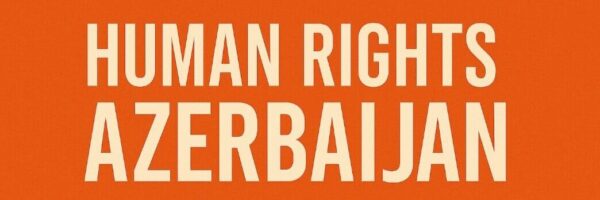Every year on July 22, Azerbaijan officially celebrates National Press Day. Lavish receptions are held in luxury hotels and upscale restaurants, while government-friendly journalists look for their names in the President’s list of honorary titles. This tradition continued in 2025, despite the fact that nearly 30 journalists remain imprisoned in the country.
Meanwhile, the true legacy of press freedom in Azerbaijan is one marked by systematic repression. The roots of such suppression can be traced to a broader historical pattern, one shared across centuries and borders. In 16th-century England, for instance, the writer William Prynne was imprisoned and tortured for publishing books critical of the monarchy. Azerbaijan may not have a media history as old as the West, but in its 150-year-old tradition, it too has produced its share of persecuted voices, many of whom have suffered fates not unlike Prynne’s.
A particularly bitter irony lies in the fact that while the Azerbaijani press emerged during the oil boom of the 19th century, it is the oil wealth of the 21st century that has nearly extinguished it. The revenue that once helped foster a climate of intellectual expression is now used to reinforce authoritarian control and media censorship.
From Oil Boom to Media Doom
A significant turning point came in 2006 with the activation of the Baku-Tbilisi-Ceyhan pipeline and the launch of Shah Deniz Phase I. The surge in oil and gas revenue rapidly increased the economic power of Azerbaijan’s ruling elites. This newfound wealth coincided with a dramatic tightening of controls over civil society and the media. Investigative outlets began uncovering offshore accounts and corruption schemes linked to top officials, prompting the state to launch a full-fledged war on independent journalism.
Raids on editorial offices, arrests on trumped-up charges, restrictions on newspaper distribution, and legal amendments designed to hinder reporting became the norm. By 2007, prominent editors and columnists were jailed, and in 2011, journalist Rafiq Tagi was murdered. The 2005 assassination of “Monitor” magazine editor Elmar Huseynov remains one of the most symbolic acts of violence against the free press.
Constitutional amendments in 2009 and 2016 eliminated presidential term limits and introduced a vice presidency, paving the way for Ilham Aliyev’s wife Mehriban Aliyeva to gain executive power. During this period, even filming in public spaces became legally restricted, and the FM broadcast of foreign radio stations was banned.
The Petro-State Model and the Price of Gas
Between 2009 and 2011, Azerbaijan’s oil production peaked, and prices reached record highs. At the same time, Azerbaijan launched massive gas export initiatives, including the Southern Gas Corridor, with backing from the EU, World Bank, and Asian Development Bank.
In 2014, Azerbaijan established the Southern Gas Corridor CJSC and signed multiple international financing agreements. By 2023, gas export capacity reached 23 billion cubic meters, with a goal of 31 billion by 2026.
As these energy projects expanded, so too did the repression of critical voices. Independent civil society organizations and media platforms that had monitored transparency were either silenced or shut down. In 2017, Azerbaijan withdrew from the Extractive Industries Transparency Initiative (EITI) instead of meeting transparency obligations. In 2023, it left the Open Government Partnership, abandoning its commitments to public accountability.
The clampdown escalated with the arrest of human rights defenders like Leyla and Arif Yunus, Anar Mammadli, and Intigam Aliyev. Investigative journalist Khadija Ismayilova was detained, and Radio Azadliq’s Baku office was raided.
Legal Censorship and Criminalization
New laws tightened state control over the media, including the 2021 “Media Law,” which introduced a mandatory state registry for journalists. Online outlets such as Azadliq.org, Meydan TV, and AbzasMedia were blocked, and independent media was gradually pushed out of the country.
Since late 2023, a new wave of arrests has targeted independent media outlets like AbzasMedia, Toplum TV, Kanal 13, and Meydan TV. Accused of crimes such as smuggling, illegal business activity, and even hooliganism, journalists have been detained en masse. The State now controls all major distribution, licensing, and advertising avenues, ensuring that dissenting voices have neither platform nor audience.
According to recent reports by the Institute for Peace and Democracy, there are currently 375 political prisoners in Azerbaijan, including nearly 30 journalists – the highest number ever recorded in the country.
2025: A Press Day Without Freedom
As Azerbaijan celebrated its 150th National Press Day on July 22, 2025, the paradox was glaring. While the government toasted itself in opulent halls, independent media was being buried under waves of arrests, censorship, and state propaganda. The collapse of press freedom in Azerbaijan is not merely a national issue but a transnational crisis. As Europe deepens its energy ties with Baku, it must also grapple with the ethical cost: the death of free expression in a nation whose oil and gas fuel European homes.
True heroes of Azerbaijan’s press are not those adorned with official medals, but those languishing in prison cells – and the world must not forget them.

